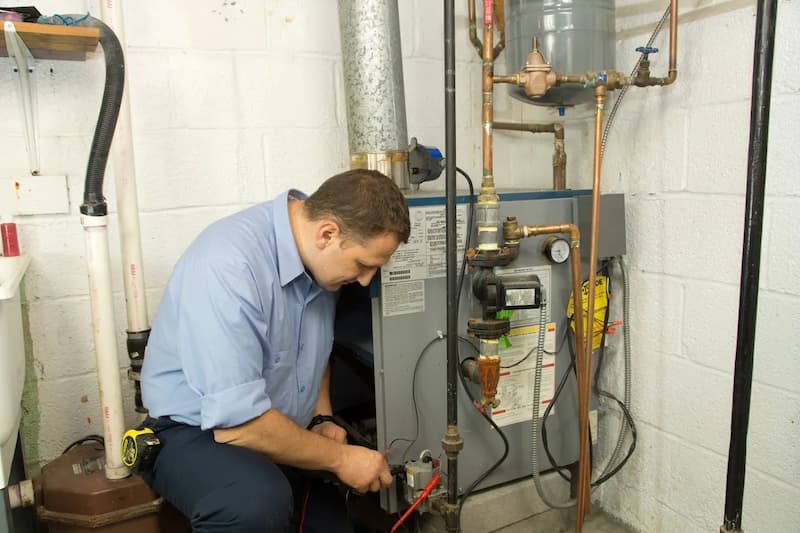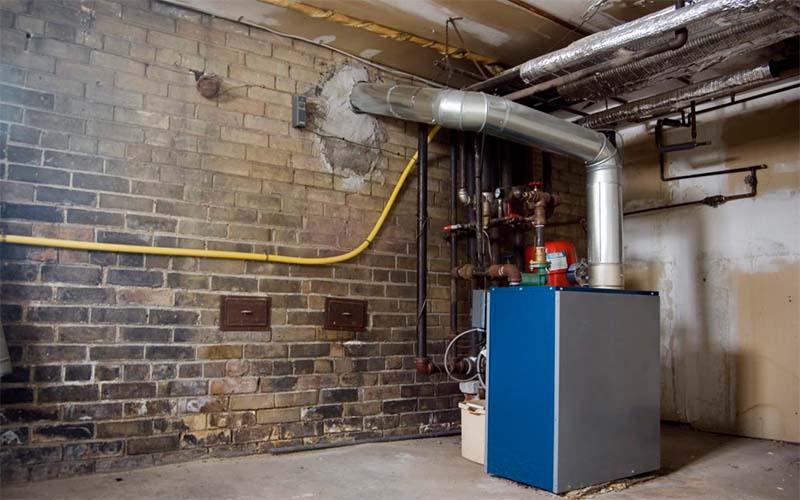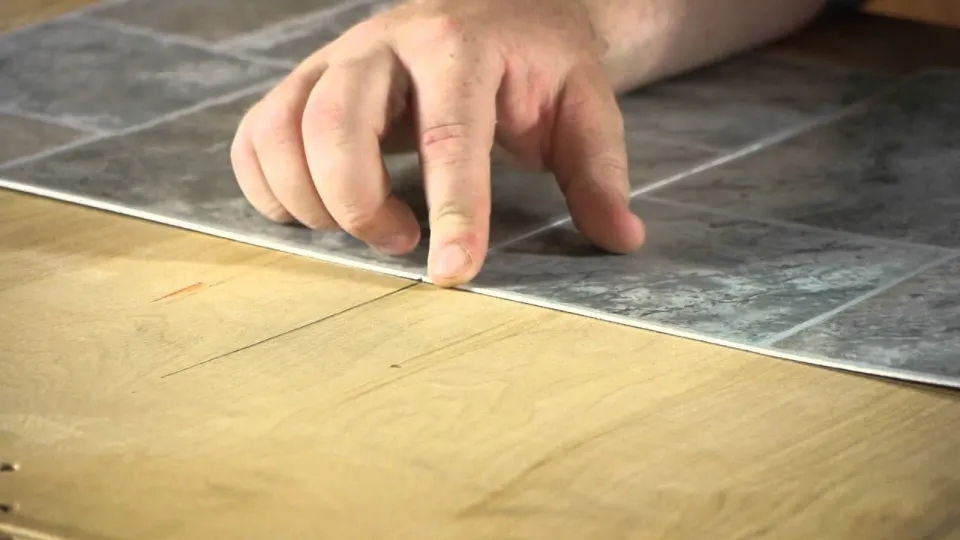How long does a furnace last? Making important choices about whether to repair or replace your furnace can be aided by having a thorough understanding of the various factors that affect furnace lifecycles. Continue reading.
A well-cared-for furnace can last for at least 15 to 20 years, and by performing annual maintenance and being prompt with repairs, you can increase its lifespan even further.
Of course, the number of repairs you are willing to make over its lifespan and the point at which it is more cost-effective to replace it can vary.
How Does a Furnace Work?
A functional furnace is essential for the comfort of you and your family as one of the most crucial pieces of equipment in your home. A furnace has four main parts:
- Thermostat– calls for heat which signals the furnace to turn on
- Ignitor– once it receives the call from the thermostat it ignites the fuel source which creates the heat
- Heat Exchanger– absorbs the heat from the burner and heats the air that is then blown through the heating ducts
- Blower Motor– this is what sends or pushes the heated air through the ducts
The temperature in your home is controlled by a thermostat, which also instructs your furnace when to light the fuel for the combustion chamber. This warms the air that was trapped in the return air duct, and an electric motor forces the heated air through the ducts to warm your house.
Factors That Affect Furnace Life Expectancy
There are a number of factors that affect gas furnace lifespan:
- Improper furnace sizing: The comfort and energy efficiency of your home can be impacted by an improperly sized furnace installed within a heating and cooling system. Plus, it potentially reduces thefurnace lifespan.
- Shoddy installation: A furnace’s typical lifespan is how long?Depending on how it is set up. The performance and dependability of a furnace can suffer from inadequately designed, sized, and sealed ductwork that restricts airflow. Additionally, performance and furnace lifespan can be impacted by improperly installed venting and fuel lines.
- Lack of regular maintenance: Regular maintenance can help extend performance and improve how long furnaces last. It is advised to hire a licensed home heating technician for routine maintenance and inspection. To boost performance and avert larger problems in the future, they can fix minor repairs.
- Extreme thermostat settings: Too high or low a temperature setting can potentially harm furnace parts, reducing furnace life or necessitating an unwelcome or costly service call. A temperature range of 600 to 800 degrees Fahrenheit is advised for the thermostat setting.

How Will I Know If It’s Time to Replace My Furnace?
No matter how well the furnace is built or how well you maintain it, the day will come when it is no longer useful. Here are some warning signs that your furnace may need to be replaced:
- Frequent service calls
- Expensive repair bills
- Uneven temperatures
- Inability to stay at the thermostat’s temperature setting
- Furnace blowing cold air
- New or increased noises
- Increase in energy bills, especially for highly efficient furnaces
How to Extend Furnace Lifespan?
The two simplest ways to increase furnace lifespan are to have your local HVAC dealer perform annual maintenance and to change the air filter as directed by the manufacturer. Filters that are dirty or clogged up can limit airflow, forcing the furnace to operate harder and longer, which can reduce furnace lifespan. The system has to work harder and could potentially have a shorter lifespan as a result of dirty buildup on internal components, which also affects performance. For more details on furnace service, be sure to visit our dedicated page on that subject.
Additionally, maintaining proper insulation and sealing in your home can aid in reducing system stress by preventing thermal loss and cold air infiltration. Your furnace’s lifespan can be increased by maintaining clean, properly sealed, and repaired ductwork. Last but not least, maintaining your thermostat settings at or close to the DOE’s recommendations can aid in efficiency, which in turn can help prolong the life of your furnace.
How Often Should My Furnace Be Maintained?
We won’t stop saying it: routine furnace maintenance will help you avoid pricey repairs, early furnace replacement, and inconveniently cold and uncomfortable days. It is always simpler and less expensive to keep something in excellent condition before a problem develops than to request an emergency repair.
It also means that you can make plans for when it’s time to replace your old furnace. Get your furnace tuned up at the beginning of the fall season – before you start using it – and get ahead of any potential issues.
Need to Replace Your Furnace?
Your furnace has undergone inspection, repair, and inspection, but nothing has changed? Time to purchase a new one.
Consider purchasing a newer model of the same furnace if the old one showed itself to be durable over time. A newer version has many advantages over its older counterparts, despite the higher initial cost.
An annualized fuel utilization efficiency (AFUE) rating is used in the construction of new furnace models to identify each model’s efficiency. It denotes how much heat the furnace can produce in comparison to. how much is lost in the combustion process.
The AFUE rating of a typical gas furnace is 80% or higher, and the best models can reach ratings as high as 98%. Keep in mind that your heating costs will decrease with higher efficiency.
Last, How Long Does a Furnace Last?
Wondering what the average life expectancy of a gas furnace is? There are mixed opinions about furnace life expectancy. Although some furnaces can last more than 40 years (extremely rare), the average life of a furnace is around 15 to 30 years. It should easily last more than 15 years if you schedule annual furnace maintenance.
Your older furnace might require some straightforward repairs, just like your car. However, some people prefer to purchase a new furnace even before a minor repair is required if the furnace is out of warranty. Some people want to fix the old furnace a lot before getting rid of it.



